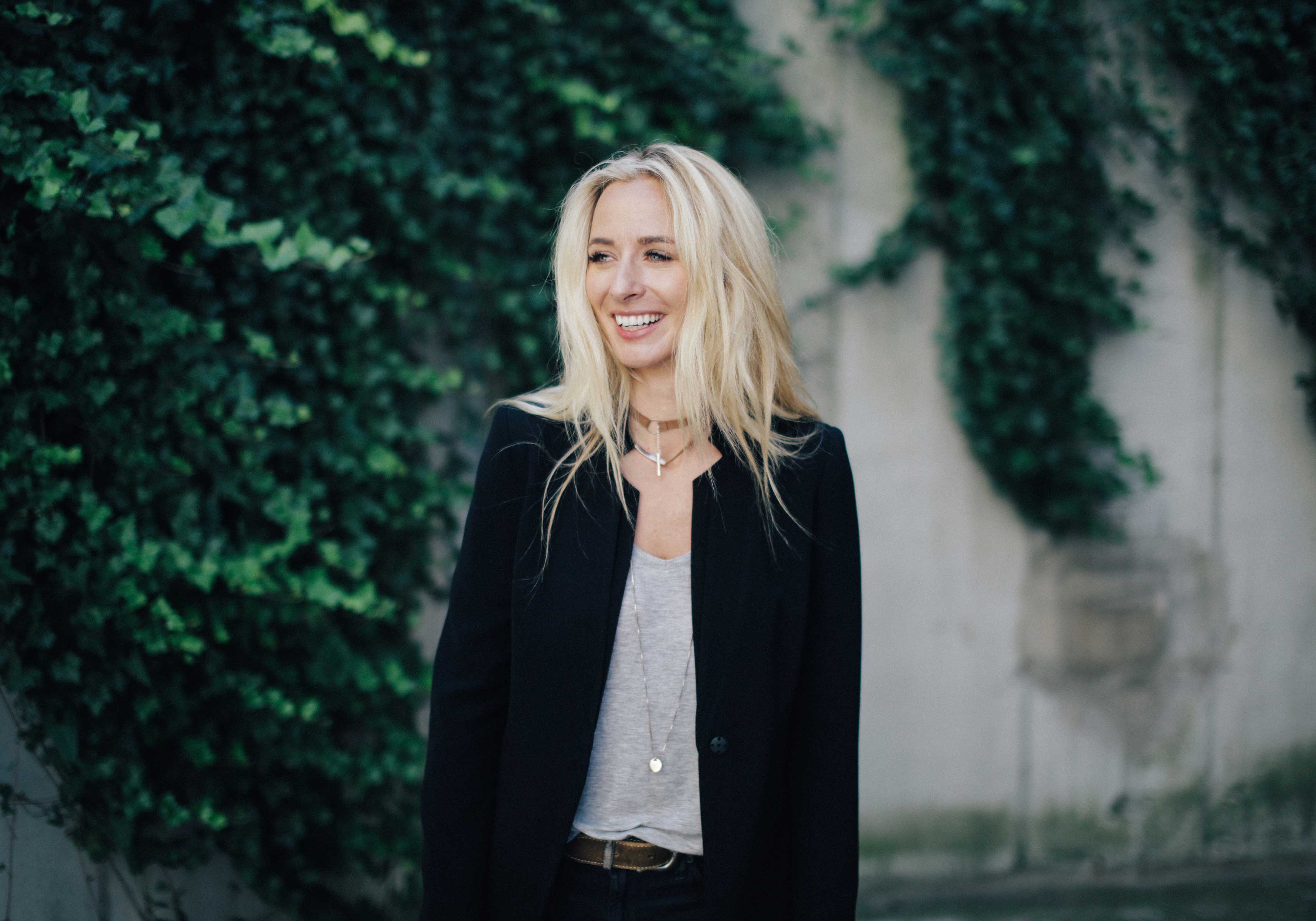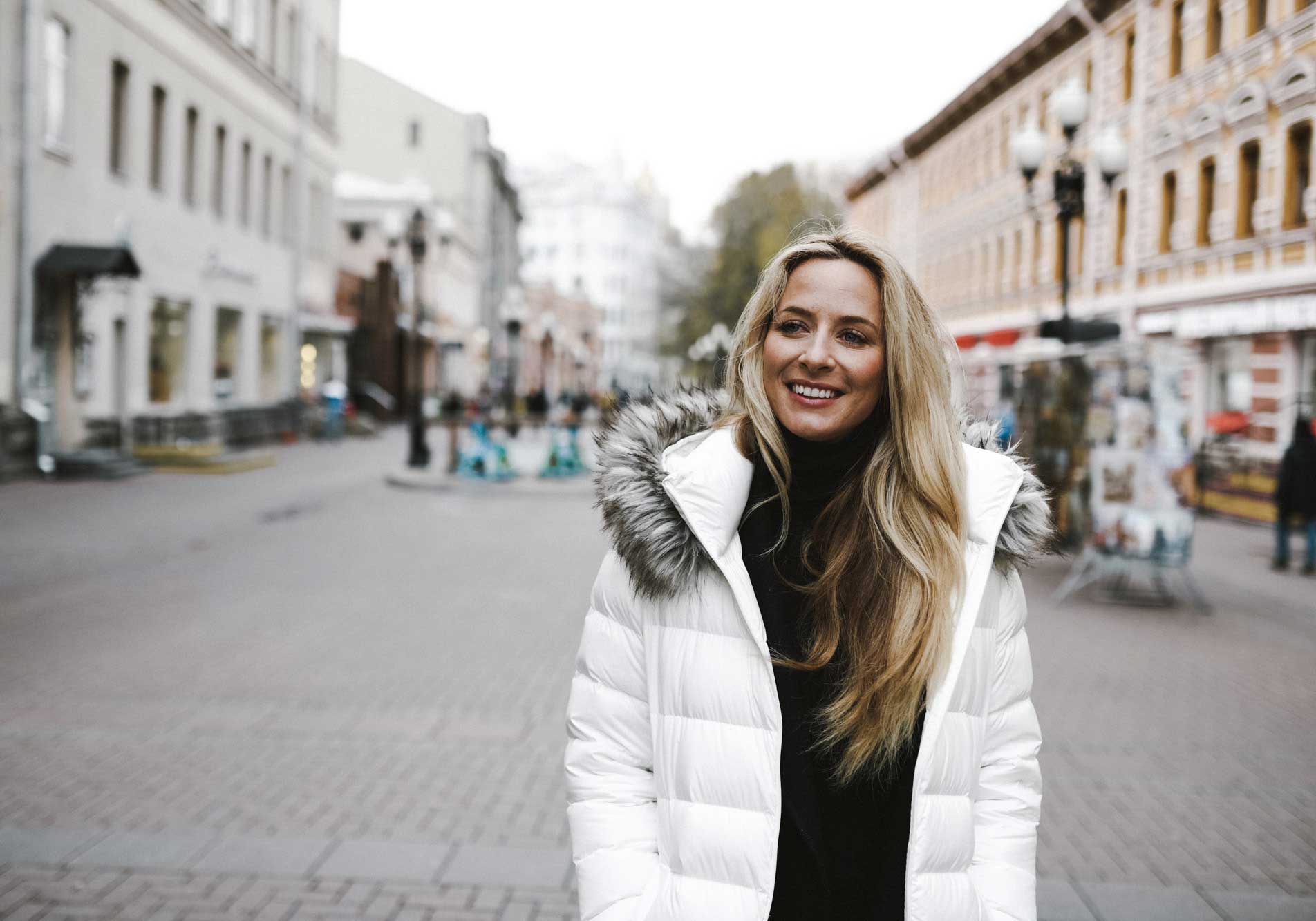One former BCom student’s mission to bring the growing sex tech industry to Australia
By Victoria George
Since launching her podcast ‘Future of Sex’ and running successful sex tech events across New York, BCom alumna Bryony Cole is set to bring the billion-dollar sex tech industry to Australia in 2018.
We chatted with Bryony to find out more about the burgeoning ‘sex tech’ industry, why she believes sex tech is important for education, what her day-to-day work involves and how studying Commerce helped shape her unique career.
‘Sex tech’ is any technology designed to enhance sexuality. This concept brings together two terms: sexuality and technology. Sexuality, not just sex.
The umbrella of sexuality is vast - it incorporates health, education, entertainment, gender identity, crime and violence.
Innovations in sex tech come under multiple categories, from virtual reality (VR), Artificial Intelligence (AI), robotics, and gaming and apps.
This can include crime and violence reporting apps, VR sex education, and sex toys that can be used to bring you into an intimate ‘sensation exchange’ via a Bluetooth connection.
As technology keeps advancing, we will find more ways we can apply it to sexuality.
Bryony Cole

I was researching for a think-tank on the next 30 years of nightlife and saw a real gap in conversation in the broader business and tech world around the impact technology is having on intimacy.
I launched ‘Future of Sex’, a podcast to bring sex tech into the public domain and consider how the innovations we create, invest, and use are influencing our behaviour and human development.
The sextech industry is predicted to reach US$20 billion by 2020 and that’s a conservative estimate. Leaders like Cindy Gallop predict sex tech will be a trillion-dollar industry someday.
From a personal perspective, watching the growth of interest in the sector, especially from women, is a positive signal we are trending up. The membership of Women of Sex Tech’s New York chapter from 30 to almost 100 in one year and larger tech media publications dedicated sextech coverage (such as CNET’s ‘Turned On’) indicates a growth of people and legitimacy in the category.
The expansion beyond entertainment and pleasure to use technology in sex education and sexual health is going to be big business over the next few years.
New York is the centre globally for sex tech. There is a lot of innovation coming out of the city because the community can support each other and drive forward together.
I have my sights set on the Australian market and creating a community of sex tech entrepreneurs, and am launching Australia’s first sex tech hackathon in Brisbane from 23-25 March 2018.
The hackathon will bring together speakers, mentors and panellists from around the world, to discuss a range of trends and issues that humans will have to navigate when dealing with intimacy in the future.
It will aim to encourage more women to enter the industry and see it as a viable career option, whilst coming together to create innovative products. This could mean developing sex tech for the ageing population, people with disabilities, cancer survivors or other ignored populations.

I think it’s critical we start normalising the conversation and education around sex, and I think sex tech will help us get there. With technology advancing so fast, our inability to talk about sex is having a detrimental effect on innovation.
Sex education has fundamentally focused on an anatomy lesson, and unfortunately instilling judgement and shaming. Essentially, sex education has not taught us how to talk about the ‘real stuff’. We talk about the mechanics of sex but not the intimacy, vulnerability, communication, and kindness.
When we can’t talk about sex, our relationships and our health suffer. We lead less authentic lives, suffering from shame, depression, a feeling that something is wrong and a lack of knowing where to turn without feeling embarrassed.
Even porn companies know what they offer is not a realistic education, and to their credit, are developing sexual health and education sites to provide this knowledge. But it should not be up to porn companies to educate us.
I think sex tech is fantastic because it can change the culture of conversation. When you term the conversation about sex around technology, as ‘sex tech’ - it becomes a little safer to talk about.
Technology is now a vessel for a shame free conversation. Beyond that, the exciting thing about sex tech is that it can be used in innovative ways to deliver education.
VR is a great example of experiencing what it is like to be another gender, to live through various experiences (for example, sexual harassment) and have an interactive, engaging educational experience around sex.
The podcast was the jumping off point for me in terms of sparking a conversation around sex. It has evolved into a seasonal recording; we are now producing season two and planning for season three.
I have a team with me now, which helps, as the episodes often feature two or three guests. Each episode explores a different side of sex tech or a topic in sexuality. The podcast also has a live component where I record in front of a live audience.
It’s varied but often involves talking to other sex tech founders about what they are working on, connecting with researchers, recording podcasts and event planning. I think people expect it to be a bit wilder than it actually is!
My business is now expanding to a second phase, beyond the podcast. This means I spend a lot of time in product and market analysis, looking at the trends around a particular sex tech topic like health or wellness.
We model out the most cutting edge products and services and assess if they are worth developing. This means I'm also going deeper into financial planning and business modelling, and exploring how new partners come on board.

I moved to New York from Melbourne five years ago with Yammer, which was acquired for US$1.2 billion by Microsoft.
I went on as Head of Community and Thought Leadership at Microsoft, and then had several roles with other enterprise technology companies before striking out on my own.
I have fond memories of all the amazing social events that were always happening on campus! The wakeboarding camps, and of course the famous sushi spot which always sold out of the best sushi!
I wish I could have my time again to appreciate the architecture, and dive into more of what was on offer on campus - it’s such an incredible location.
Having a Commerce degree opened doors for me because it is universally applicable to all industries.
It doesn’t matter whether you are in travel, finance, fashion or sex tech, learning the importance of collaboration and teamwork sets you up to enter any field.
Too often I see artistic projects run out of steam because the people behind them don't know how to make money. Having a business degree helped me understand how I might approach a creative pursuit, like a podcast, with a business strategy.
I've been able to set up partnerships and advertising models to support the storytelling side of podcasting. The next phase of the business will be a Future of Sex Labs which takes all the insights from the podcasts and develop new sex tech products to take to market.
If I didn't hone my skills in Commerce I don't think I would have made this such a priority early on, and thankfully I did, as it's critical support for the growth of the business.